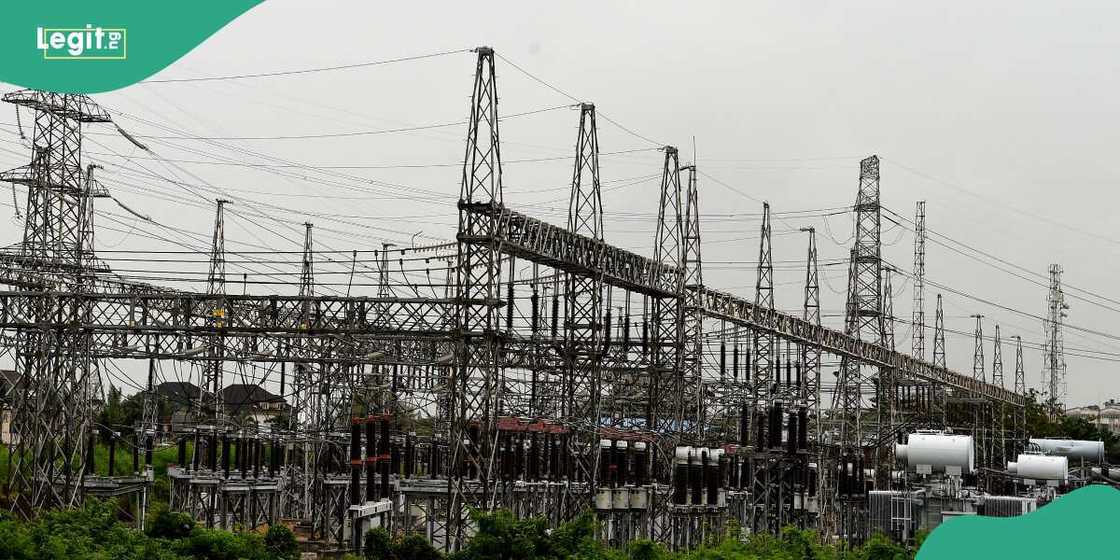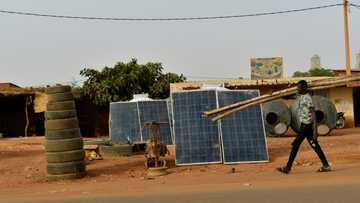Nigeria Reportedly Cuts Electricity to Niger Republic, Reducing Supply by 42 Percent
- Nigeria has reduced its electricity supply to Niger Republic from 80 megawatts to 46 megawatts, marking a 42 per cent decline amid ongoing regional sanctions
- Meanwhile, Nigeria's own power sector faces deep financial challenges, with power generation companies warning of an imminent shutdown due to a N4tn liquidity crisis
- The government has pledged to intervene, as experts stress that urgent action is needed to prevent further disruptions in electricity supply
Nigeria has reduced its electricity exports to Niger Republic from 80 megawatts to 46 megawatts, marking a 42 per cent reduction in power supply, Channels TV reported.
In reaction, Niger’s Energy Minister, Haoua Amadou, confirmed that this measure has led to a 30 to 50 per cent decline in the country's electricity production, forcing the state-owned power company, Nigelec, to impose planned power cuts.

Source: Twitter
Some outages have lasted several days, particularly in the capital, Niamey.
Regional sanctions and Nigeria’s energy crisis
According to Channels TV, Nigeria initially suspended most of its electricity exports to Niger as part of regional sanctions following the military coup that ousted civilian president Mohamed Bazoum in July 2023.
Despite the partial resumption of supply, Nigeria continues to struggle with low power generation due to inadequate gas supply and insufficient investments in infrastructure.
Experts estimate that the country needs at least 30,000 megawatts to meet national demand, yet it generates just over 5,000 megawatts for its over 200 million residents.
GenCos warn of imminent shutdown over N4tn debt
On Monday, Nigeria’s power generation companies (GenCos) warned of an imminent shutdown due to a worsening liquidity crisis.
The companies, under the Association of Power Generation Companies, reported that outstanding debts now exceed N4tn, including N2tn for power supplied in 2024 and N1.9tn in legacy debts.
The firms revealed that power plants receive less than 30 per cent of their monthly invoices, pushing the electricity sector toward collapse.
Federal government’s response to the crisis
Minister of Power, Adebayo Adelabu, acknowledged the crisis and pledged to resolve the debt issue. His special adviser, Bolaji Tunji, stated that the government is aware of the situation and is implementing concrete measures to address the problem.
He assured that the Ministry of Finance would soon take charge of payments to stabilise the sector.

Source: Getty Images
About Niger Republic
Niger Republic is a landlocked country in West Africa, bordered by Algeria, Libya, Chad, Nigeria, Benin, Burkina Faso, and Mali. Its capital is Niamey, and it has an estimated population of over 27 million people.
Despite having significant uranium deposits, Niger remains one of the world's poorest nations, with much of its economy reliant on agriculture and livestock.
The country has experienced political instability, including a military coup in July 2023 that led to the suspension of its constitution and government institutions. French is the official language, and Islam is the dominant religion.
Military-led Niger dumps French, adopts Hausa
Legit.ng earlier reported that Niger’s military-led government has declared Hausa as the country’s new national language, replacing French.
As reported by TRT World, this is another decisive step away from its former colonial power, France.
The junta stated in a new charter published on March 31 in a special edition of the government’s official journal.
PAY ATTENTION: Сheck out news that is picked exactly for YOU ➡️ find the “Recommended for you” block on the home page and enjoy!
Source: Legit.ng





